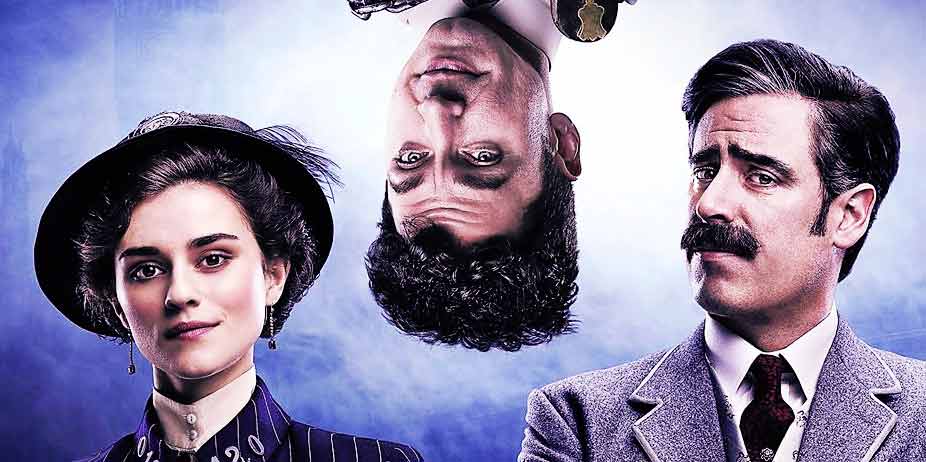
 Houdini
& Doyle, Season 1 (2016)
Houdini
& Doyle, Season 1 (2016)
Scotland Yard has no time for nonsense. When a nun turns up shorn and murdered, the police want to put a real person behind bars, not endure listening to rubbish about some ghost. But even the queerest cases demand investigation, so they reluctantly put two amateur detectives on the case -- Harry Houdini (Michael Weston) and Sir Arthur Conan Doyle (Stephen Mangan). Since they need supervision, the head of the department assigns the force's first female officer, Adelaide Stratton (Rebecca Liddiard) to "bring some common sense" to the mix. Off the quirky trio go to investigate -- and soon discover there is more to the ghost story than first appeared.
Houdini is the skeptic, a magician who knows every illusion and trick in the book. Doyle is the believer, desperate to find a connection to the afterlife, to absolve his fears about a recent tragedy at home. And Adelaide has a dark, troubled secret of her own that may endanger all their lives. Together, these opposites become friends... and investigate crimes where sometimes, logic doesn't hold all the answers.
I liked it. Sometimes, that's the simplest thing to say about a piece of entertainment. It's not the best thing on television, but it is entertaining. It does tackle some controversial topics from time to time. It deals with insanity, prejudice, racism, sexism, and debates between faith and science, without ever being preachy or obnoxious. The diverging personalities and perspectives make for interesting arguments. I also liked it that while each case does have a logical explanation behind it, there are still mysteries beyond their comprehension... Houdini can find the "ghost" but cannot explain a piano playing by itself in his hotel room. It is ambiguous enough to let the viewer draw their own conclusions. There are some bland moments, and the mysteries are rarely extremely challenging, but for the most part, it's fun to watch while avoiding being explicit.
The finest line the series walks is in episodes dealing with Christianity; the incident with the faith healer might offend, but also raises interesting questions about faith, prayer, God, and belief. It also raises interesting questions and statements about Victorian society's virtues and vices (Doyle condemns Houdini for a wisecrack about a man dying of an advanced, peculiar brand of syphilis, implying former actions are less important than current suffering). The friendship builds over the entire season, alongside a gradual arc in which Adelaide's past is revealed. The show doesn't stay in one place, and even comes to America for the last few episodes. The cast is terrific and all the leads likable. There are a few historical liberties that aren't true to period (both in casting decisions and Houdini and Doyle's friendship -- the series takes place two decades before the real men met) but overall, if you don't mind paranormal events, it's a fun eight or so hours.
Sexual Content:
References to adulterous affairs and illegitimate children.
Houdini makes some sexual remarks to Adelaide (he asks her if she's a virgin,
and speculates on her answer after the fact). A reference is made to men
sleeping together. Houdini has a one night stand (kissing, waking up beside her)
and a reputation as a playboy.
Language:
Occasional uses of bloody, damn, hell, etc.
Violence:
Various bodies are found in mildly gruesome circumstances
(the goriest is a "vampire" murder); some violence.
Other:
Tons of paranormal activity, mediums appearing to "channel"
dead people's voices, several séances, and inexplicable supernatural events;
most are debunked and the psychics revealed as fakes, although some still
inexplicably "know" things.
One episode features a boy who believes he's a reincarnated soul avenging his
own murder. Christianity takes a beating in several episodes (nuns who are cruel to the
women who take shelter with them, a "faith healer" shown to be a fraud and
someone close to him a murderer, etc).
